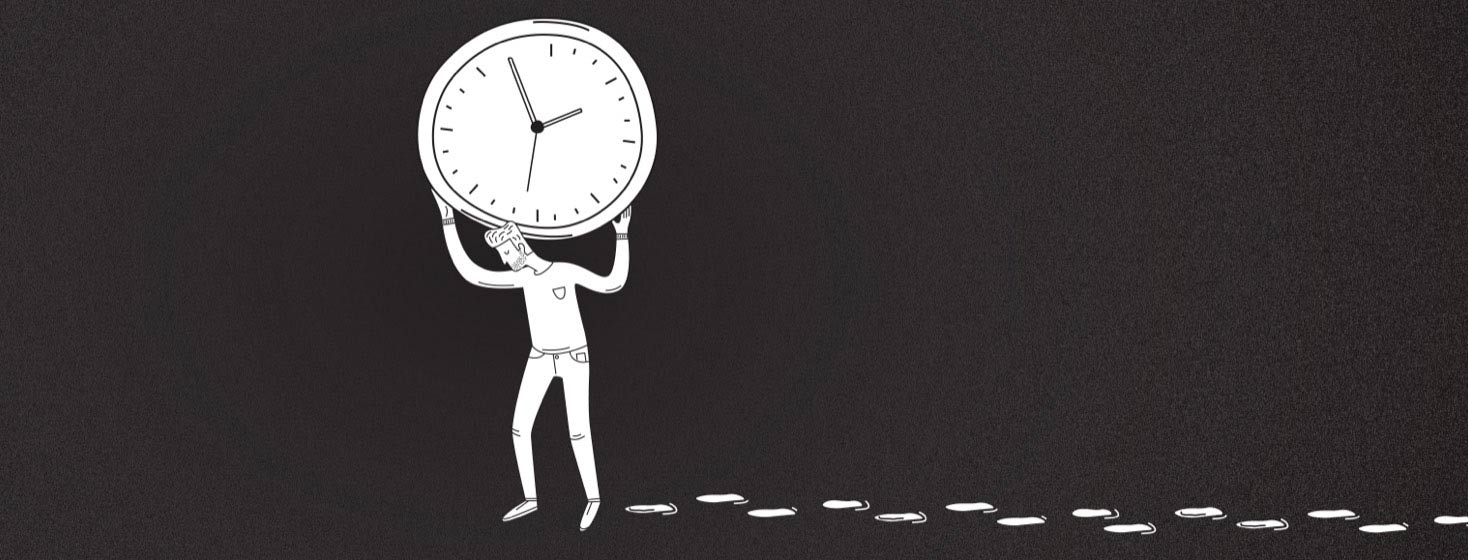Prepare Now for Sleeplessness Following the Time Change
It’s right around the corner: the change from daylight saving time to standard time. Theoretically, we “gain” an hour of sleep after we set our clocks back by an hour.
But this really isn’t true. We don’t gain or lose time. We simply shift the measure of time in one direction. And that leads to the upheaval — however temporary — of our circadian rhythms.1
4 problems can result:
- Insomnia
- Circadian disruption
- Excessive daytime sleepiness (EDS)
- Drowsy driving
Insomnia
Any time change, of even one hour, disrupts our sleep schedules. It can be harder to fall asleep or to maintain sleep during the week following the time change, even for those without insomnia.2
However, for those who live with insomnia, an extra hour may just be more time to not sleep. They’ll just wake up grumpier and sleepier than before.2
Circadian disruption
The time change is essentially a socially enforced form of jetlag. Any conflict between what your body needs (sleep) and what society demands (alertness) points to the potential for circadian disruption.1
The earth’s light and dark cycles — both daily and seasonally — inform human circadian rhythms. The further you live from the equator, the darker it will be following the fall time change. You may need more time to adapt than someone who lives where days run sunny and long.2
Fortunately, both jetlag and the time change are temporary, self-limiting disruptions.
Unfortunately, people with chronic insomnia may struggle to adapt because they’re already sleep-deprived or living with sleep fragmentation.
Excessive daytime sleepiness
Feeling extra sleepy during the day suggests disrupted circadian rhythms, sleep deprivation, or fragmentation. Those living with insomnia already experience some EDS. Following the time change, it’s likely to worsen for them.
Daytime naps offset EDS, but keep them short — up to 30 minutes — to avoid feeling even more groggy afterward.1,3
Featured Forum
View all responsesDrowsy driving
In healthy sleepers, drowsy driving risks increase in the days following the spring time change. This may mean risks are lower for them during the fall. However, those with chronic insomnia prior to and during the fall time change face much higher risks for falling asleep at the wheel.4,5
Tips for avoiding time change problems
- Remember: The time change is environmental. Once you adapt to new light conditions, you’ll find yourself back to normal. (Those with insomnia will still be sleepless, however.)
- Prepare to adapt a few days in advance of the time change by staying up a little later every night (15 to 20 minutes) in the week prior. This forces a gradual adjustment that you’re less likely to feel or notice. This method only works if you’re vigilant about maintaining the same bedtime every single night — a critical aspect of sleep hygiene. If you don’t keep to the same bedtime out of habit, this protocol isn’t likely to work.
- Get a good dose of natural light first thing in the morning. This creates a daily, almost effortless way to reset your rhythms. Still dark out? Use light therapy. Light boxes (also known as “happy lights”) have been shown to prevent insomnia when used in the morning at any time of year.1-3
- Be cognizant of indoor light sources. Those that emit blue spectrum light suppress the brain’s melatonin secretion, the “sleep hormone” that transitions us from wakefulness to sleep. Electronic gadgets (smartphones, handheld gaming devices, electronic books, and tablets) deliver this ultrabright light, making it hard to fall asleep if used 1 to 2 hours before bedtime.2
- Use blue light filters on your devices, or wear blue-blocking eyewear, to avoid the problems caused by electronic devices.
- Be wary of bright white halogen, CFB, or LED bulbs used in lamps and room lighting in spaces where you’re most likely to gather at the end of the day. Opt for softer pink or red spectrum bulbs for best results.6
- Heads up: Circadian shifts may cause cluster headaches for some following the time change that can last weeks.2
- You might feel an increased appetite following the time change. Sleep disruption causes an increase in the hunger hormone, ghrelin, which may inspire you to snack more following the time change.2
- Mild exercise during the bright light of day can also enhance your daily circadian reset and lead to an easier time falling or staying asleep.
The protocol:If your normal bedtime is 10:30 PM, go to bed at 10:45 PM on the Wednesday before the time change. On Thursday, go to bed at 11:00 PM. On Friday, try 11:15 PM. On Saturday, 11:30 PM. Then, when Sunday rolls around, go to bed at 10:30 PM again (it will feel the same as 11:30 PM before the change).1,3

Join the conversation